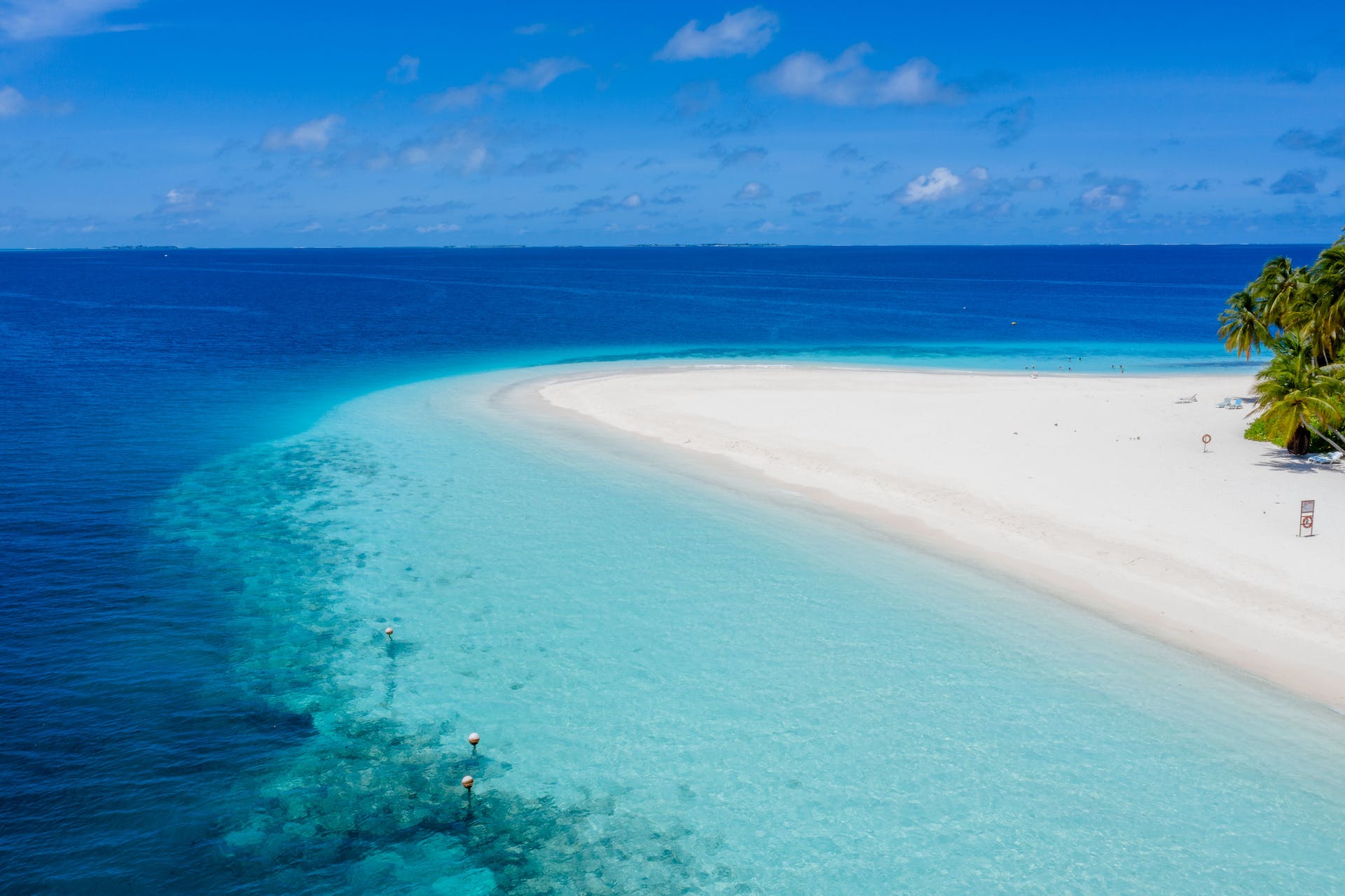India Maldives Relations – Discover how a seemingly minor dispute between India and Maldives on social media quickly spiralled out of control. Leading to a full-blown conflict in the real world. See how the power of online communication can have significant real-world consequences.
An online argument that lasted three days escalated into a real-world situation on Monday when the Maldivian envoy received a summon. How the Maldives became involved in the dispute unrelated to the country is still being determined. However, the politicians started throwing venom on the island, resulting in a backlash from Indians.
India and the Maldives face a diplomatic disagreement that initially transpired on social media platforms. The conflict persisted for nearly three days before transitioning to the physical world. Consequently, on Monday, January 8, India summoned Maldivian High Commissioner Ibrahim Shaheeb, while the Indian envoy in Male met with Maldivian officials there to discuss the issue diplomatically.
The online dispute began when some Maldivian politicians used inappropriate language against Indian Prime Minister Sh. Narendra Modi promoted Lakshadweep, which some vested interests in Maldives believed was harming their tourism industry.
Both countries are engaging in discussions to resolve the issue peacefully. Reports and social media discussions suggest that additional factors may be at play regarding the promotion of Lakshadweep by Prime Minister Narendra Modi.
Prime Minister Modi’s recent visit to Lakshadweep on January 4 has sparked a controversy. He shared pictures of himself enjoying the island’s beaches and snorkeling in the coral reefs. In his post, he praised Lakshadweep as a testament to its people’s spirit and a timeless legacy of traditions.
PM Modi also visited Kerala and Tamil Nadu before heading to Lakshadweep, marking his tour of Southern India.
The issue of Lakshadweep has gained attention in recent times. Some social media users have speculated a link between PM Modi’s visit to Lakshadweep and his reference to “India’s best-kept secret” with the Maldives. This speculation is due to reports that the Maldivian government has been getting closer to China. This fact has long been a concern for India because it views the Indian Ocean Region as a strategic space. In the recent polls, China-leaning Mohamed Muizzu won against pro-India Ibrahim Mohamed Solih. However, New Delhi has not said anything to suggest any Maldivian link to Lakshadweep’s promotion.
However, some politicians from the Maldives jumped onto the online chatter and started using abusive language for PM Modi and Indians in general.
How Maldivian Ministers Started Anti-India Abuses
Maldives Deputy Minister of Youth Empowerment, Mariyam Shiuna, called Prime Minister Narendra Modi a “clown” and “puppet of Israel” on X. Over multiple posts, Mariyam Shiuna repeatedly carried on with her derogatory rants. It’s a different story that, after facing massive blowback, the minister deleted her posts.
Maldivian MP Zahid Rameez, who jumped on to the belittle-India campaign, said India “competing” with the Maldives regarding tourism was “delusional.” Worse, he said there was a “permanent smell in the rooms [in India].” Rameez shared an India Today Digital report on the significance of PM Modi’s Lakshadweep visit and accused India of “copying a small economy like Sri Lanka” to make money. What he said next hurt the dignity of Indians.
“The move is great. However, the idea of competing with us is delusional. How can they provide the service we offer? How can they be so clean? The permanent smell in the rooms will be the biggest downfall,” Rameez said. His remarks angered several Indians, marking the start of a massive online counter-offensive. Both celebrities and ordinary people joined forces.
How Indian celebs united in a show of strength in India Maldives conflict
By Sunday (January 7), several Indian celebrities supported “exploring Indian islands.” They promoted Lakshadweep and other Indian locales as possible alternatives to the Maldives. The celebrities list includes Akshay Kumar, Salman Khan, Kangana Ranaut, John Abraham, and Shraddha Kapoor, who posted concerning posts.
How common Indians jumped in Maldives row
Ordinary Indians soon joined the row by using hashtags like #ExploreIndianIslands and #BoycottMaldives against the “unprovoked hate” from Maldivians.
After the remarks and subsequent row, many reactions started pouring in, resulting in cancellations of their Maldives holiday plans. By Sunday, January 7, Maldivian officials and former President Ibrahim Mohamed Solih came forward in the media and condemned the anti-India hatred spewed by Maldives politicians.
“I condemn the use of hateful language against India by Maldivian government officials on social media. India has always been a good friend to Maldives, and we must condemn such callous remarks to spread negativity to impact the age-old friendship between our two countries,” Solih posted.
Maldives went into panic mode, having seen lakhs of cancellations of bookings by tourists from India. Former Maldives minister Ahmed Mahloof alarmed the authorities that Indians boycotting the tourist destination would significantly impact the island nation’s economy.
Finally, Maldives takes action against hate-mongers
All this while, the entire fight was playing out in cyberspace. The controversy, however, had become too big for the Maldives not to act. Finally, Male acted on Sunday (January 7). He suspended three Maldivian lawmakers. The Maldivian Foreign Office “acknowledged the derogatory remarks on social media platforms against foreign leaders and high-ranking individuals.” Moreover, the Maldivian government also reportedly schooled those involved. The cyber-battle continued over three days and now saw on-ground diplomatic action on Monday (January 8).
The Indian High Commissioner to the Maldives, Munu Mahawar, visited the Maldivian foreign office as a “pre-arranged visit” to lodge a strong-worded protest against the remarks. A few hours after the visit, the External Affairs Ministry summoned Maldivian envoy Ibrahim Shaheeb to the South Block in New Delhi.
The online battle has resulted in a “boycott Maldives” campaign and a diplomatic row on the ground.
India’s friends in the Maldives hope that the controversy’s fallout is momentary and won’t affect the age-old friendship between our two countries”. This is precisely the hope of people like former President Solih, who took Indo-Maldivian relations to a new high, along with PM Modi.
The Aftermath
In the Indian Ocean Region (IOR), the Maldives is India’s principal maritime neighbour and plays a specific role in the nation’s efforts, such as SAGAR (Security and Growth for All in the Region) and the Neighbourhood First Policy of the Modi administration.
The Maldives has great strategic importance due to its proximity to India—just 70 nautical miles separate it from the island of Minicoy in Lakshadweep and 300 nautical miles from the western coast of the mainland—and its position at the intersection of commercial sea lanes that traverse the Indian Ocean.
Under Mohamed Muizzu’s presidency, the Maldives government asked the Indian government to withdraw its troops from the island nation in December 2023. Moreover, the new Maldives government asked India to put a stop to conducting a hydrographic survey in the territorial waters of the Indian Ocean archipelago (the MoU facilitating cooperation in the field of hydrography was signed in 2019 when the Solih Government was in power). The Maldivian President, Mohamed Muizzu, made a subtle dig at India for “bullying.” A day later, his administration gave India until March 15 to remove its military personnel from the nation.
During the inaugural meeting of the India-Maldives high-level core group in Male, a top government official in Muizzu announced the deadline. According to a Reuters story, Ahmed Nazim, policy director at the President’s Office, informed reporters that the Maldivian delegation “proposed the removal of Indian troops by March 15” during the meeting on behalf of President Muizzu. “The administration, especially the President, suggested this date for the agenda. These talks are still going on,” he stated. It’s wait and watch till the deadline is not crossed, keeping fingers crossed.




